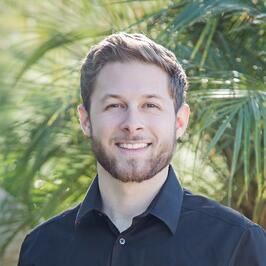Q&A with Tesla Software Integration Engineer Sammy Macaluso
Macaluso, a recent BCOE alum, shares career advice with BCOE studentsAs we continue to provide additional support for our students during COVID-19, we recently caught up with '18 computer engineering alumnus and transfer student from Mt. San Jacinto College, Sammy Macaluso. Macaluso is now a software integration engineer at Tesla, and he shared his advice on professional development with our current BCOE students.
1. How did your experience at BCOE help prepare you for your current role as a Software Integration Engineer at Tesla?
My experience at BCOE, particularly through the projects I was involved in, gave me the opportunity to directly apply my learnings to real-world problem solving. Joining the Society of Automotive Engineers (SAE) and founding the Electric Vehicle team taught me how to take an undefined problem through all phases of engineering development. It also helped me iterate through basic and complex situations in a variety of disciplines outside of engineering, including business and communication. These experiences inspired the big picture thinking necessary to become efficient with system design and integration in the software engineering space.
2. What would you recommend first and second-year BCOE students be sure to do to best prepare for their future careers?
My biggest recommendation is for students to always challenge themselves. Whether that be through class projects, taking those projects further by increasing scope and complexity, or applying the lessons learned in class to clubs or personal projects. Look at your dream job that you plan to apply for in 3-4 years and write down all the required skills. Think about how you can best utilize these next few years to achieve these skills. By personally practicing this during my college career, I educated myself with software tools used in industry that are not usually taught in school, which gave me the upper hand in school projects and beyond. The best part is, many software companies will likely be willing to sponsor your project for free, so don't be afraid to reach out!
3. What advice do you have for graduating BCOE seniors who are entering the workforce this year?
Make sure you are still working on acquiring the skills that better qualify you for your dream job. It's never too late to change your mind, learn new skills, or practice old ones. Practice, practice, practice. Preparation is key! Just like you shouldn’t be trialing a presentation in front of the class, you should not be seeing interview problems for the first time at your interview. Having a stacked resume might get you an interview, but having hours and days of practicing for interview problems under your belt gets you the job. My advice is to work with a friend. Although it's not required, team collaboration can be the competitive edge you need to stay motivated and ready. Set up work sessions to work on your resume, portfolio and interview questions; constructive criticism is how we grow!
4. What is the best part about being an engineer?
Overcoming challenges in uncharted territory by applying a unique skill set and understanding of first principles to derive solutions that are cheaper, faster and more efficient. For me personally - knowing the projects you work on can have a large positive effect on communities, people, and potentially the world, makes waking up for work exciting.
5. What's your favorite memory from BCOE?
Collaborating with other dedicated passionate engineers that were striving for success. There is no guarantee that after college you’ll have access to the same level of collaboration. Don't take it for granted!
